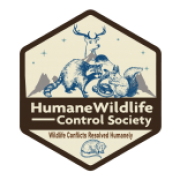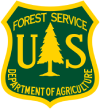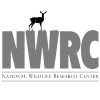Humane Wildlife Control in Paterson, NJ
The Humane Wildlife Control Society recommends non-invasive solutions to resolve human-wildlife conflicts. This includes:
Determining if the issue needs to be addressed at all
Opting for preventative measures first
Opting for wildlife exclusion as opposed to trapping
If trapping is the only way to solve the problem do so humanely
The Humane Wildlife Control Society screens candidates prior to recommendation. Our process requires any company we recommend to meet the following criteria:
Is properly licensed in New Jersey for wildlife control
Carries appropriate business licenses and insurance
Complies with all New Jersey laws and regulations for wildlife control
Adheres to the humane principles listed above.
In Paterson, New Jersey we recommend Humane Wildlife Removal Paterson for professional wildlife control services. This is a private company that charges for their services.
Contact Information:
Pest Animal Removal
973-607-2206
If you have any wildlife issues that can be handled by the state government agency for free, the New Jersey Wildlife Commission can help.
State Contact Information: 609-292-2965
The State Department of Agriculture may also be able to address your wildlife problem for no charge.
USDA Contact Information: (609) 292-3976
Homeowner’s Guide to Humane Wildlife Prevention: Paterson, New Jersey Introduction Why Prevention Matters Reduces property damage caused by nesting, chewing, and burrowing. Minimizes health risks from diseases and parasites carried by wildlife. Protects both humans and animals by reducing unnecessary conflicts. Legal and Ethical Considerations New Jersey Division of Fish & Wildlife guidelines on humane exclusion and removal. Federal laws, including the Migratory Bird Treaty Act, protecting certain bird species. Local ordinances, which may restrict trapping and relocation. Before taking any action, homeowners should consult these resources to ensure legal compliance. Wildlife Prevention Strategies Securing Entry Points Inspect your home for openings in attics, basements, chimneys, and crawl spaces. Seal holes and cracks with durable materials such as steel mesh or heavy-duty caulk. Install chimney caps and vent covers to block access. Managing Food Sources Store garbage in wildlife-proof containers with secure lids. Remove pet food and birdseed from outdoor areas at night. Keep compost bins covered and avoid adding meat or dairy products. Landscaping Modifications Trim overhanging tree branches to prevent roof access. Remove brush piles and debris that provide shelter for wildlife. Install fencing around gardens and decks to deter burrowing animals. Using Humane Deterrents Motion-activated lights and sprinklers can discourage nocturnal animals. Non-toxic repellents, such as vinegar or predator scent products, can deter intruders. Noise devices, like radios or ultrasonic repellents, can help keep wildlife away from certain areas. What to Do If Wildlife Has Already Entered Your Home Do not attempt to trap or relocate animals yourself, as improper handling can cause harm to both you and the animal. Use one-way exclusion devices to allow animals to exit but not re-enter. Wait until young animals have matured before sealing off an entry point to prevent orphaning. Contact a licensed wildlife control expert for safe and humane removal. Emergency Contacts and Resources New Jersey Division of Fish & Wildlife: (609) 292-2965 Paterson Animal Control: (973) 321-1277 Local Wildlife Rehabilitators: Contact for injured or orphaned animals.
Paterson, New Jersey, is home to a variety of wildlife species that may seek shelter in residential structures. While animals such as raccoons, squirrels, and bats play an essential role in the ecosystem, they can become a nuisance when they enter homes. This guide provides homeowners with humane, effective strategies to prevent wildlife intrusions while complying with local and state regulations.
Wildlife management in Paterson is regulated by:







